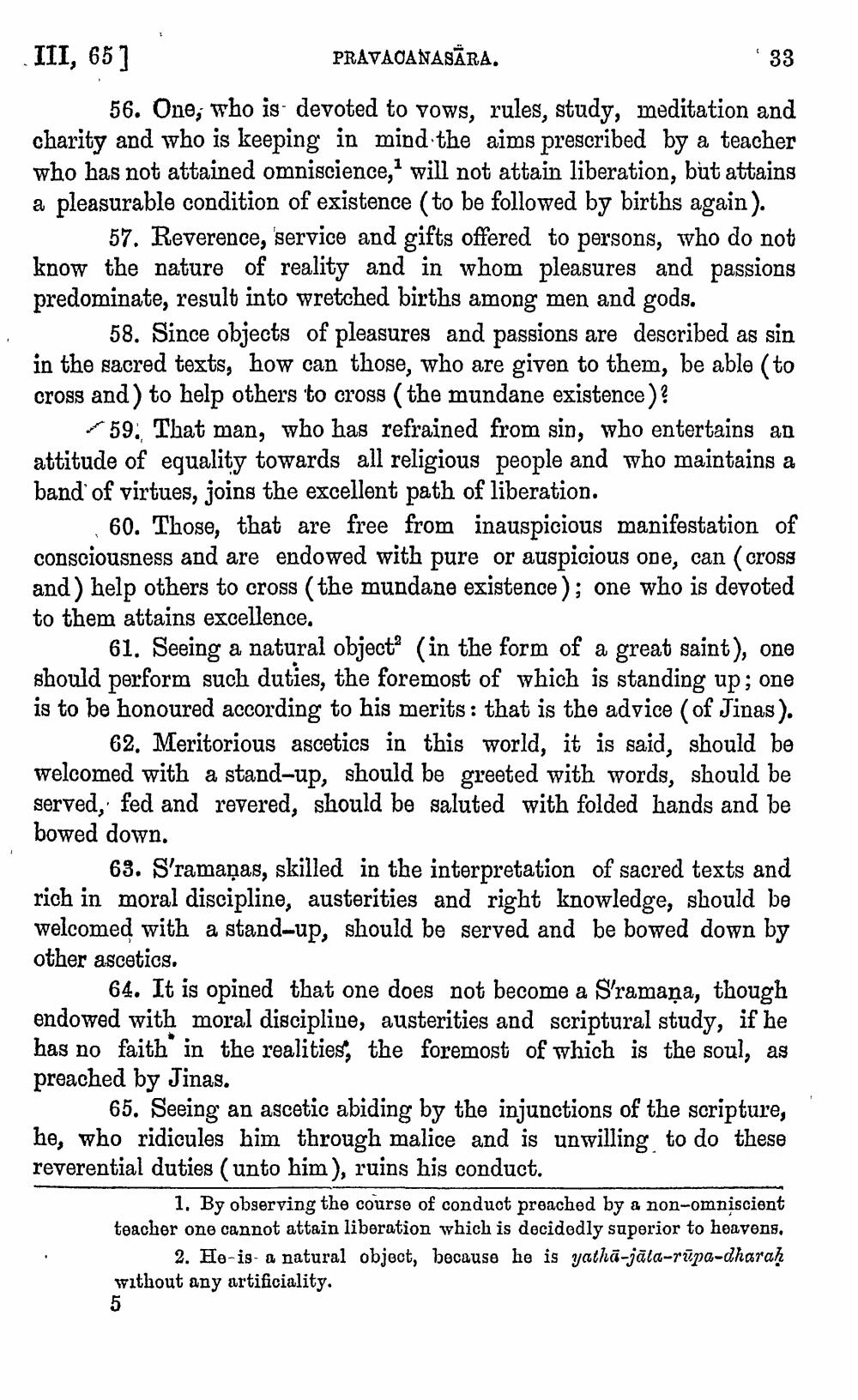________________
III, 65] PRAVACANASÄRA.
'33 56. One, who is devoted to vows, rules, study, meditation and charity and who is keeping in mind the aims prescribed by a teacher who has not attained omniscience, will not attain liberation, but attains a pleasurable condition of existence (to be followed by births again).
57. Reverence, service and gifts offered to persons, who do not know the nature of reality and in whom pleasures and passions predominate, result into wretched births among men and gods.
58. Since objects of pleasures and passions are described as sin in the sacred texts, how can those, who are given to them, be able (to cross and) to help others to cross (the mundane existence)?
can 59That man, who has refrained from sin, who entertains an attitude of equality towards all religious people and who maintains a band of virtues, joins the excellent path of liberation.
60. Those, that are free from inauspicious manifestation of consciousness and are endowed with pure or auspicious one, can (cross and) help others to cross (the mundane existence); one who is devoted to them attains excellence.
61. Seeing a natural object (in the form of a great saint), one should perform such duties, the foremost of which is standing up; one is to be honoured according to his merits: that is the advice (of Jinas).
62. Meritorious ascetics in this world, it is said, should be welcomed with a stand-up, should be greeted with words, should be served, fed and revered, should be saluted with folded hands and be bowed down.
63. S'ramaņas, skilled in the interpretation of sacred texts and rich in moral discipline, austerities and right knowledge, should be welcomed with a stand-up, should be served and be bowed down by other ascetics.
64. It is opined that one does not become a S'ramaņa, though endowed with moral discipline, austerities and scriptural study, if he has no faith in the realities, the foremost of which is the soul, as preached by Jinas.
65. Seeing an ascetic abiding by the injunctions of the scripture, he, who ridicules him through malice and is unwilling to do these reverential duties (unto him), ruins his conduct.
1. By observing the course of conduct proached by a non-omniscient teacher one cannot attain liberation which is decidedly superior to heavens,
2. He-is- a natural object, because he is yathā-jāla-rūpa-dharaḥ without any artificiality.




